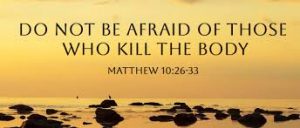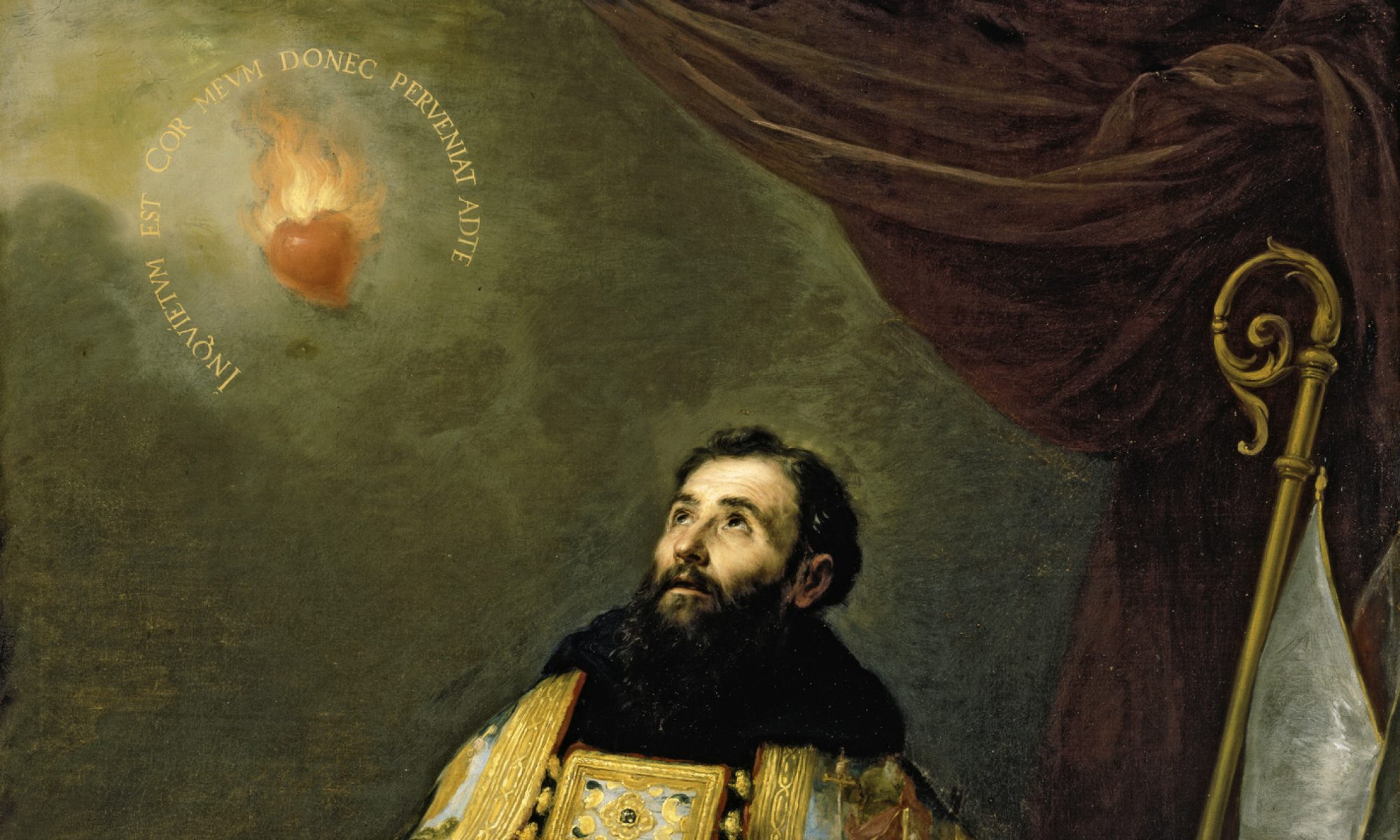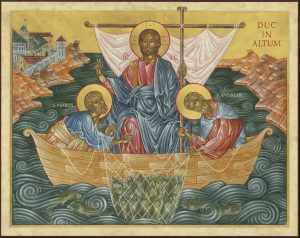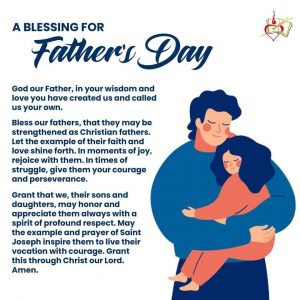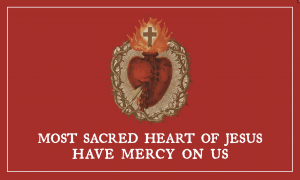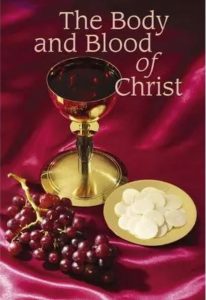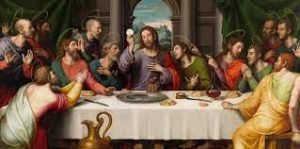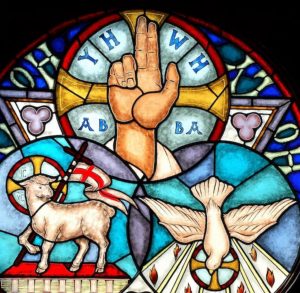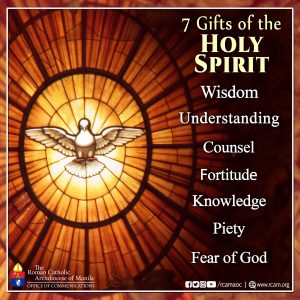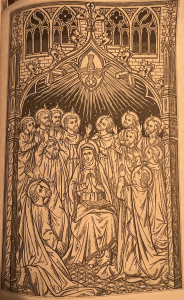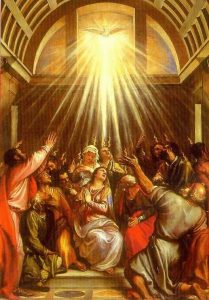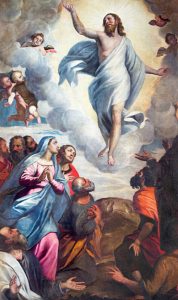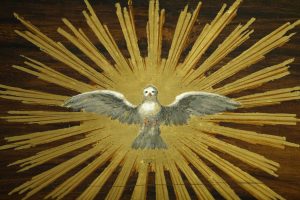Several times in life, we have experienced great anguish caused by others, maybe thinking that we did not do anything bad. Yet we suffer emotional distress thinking about it with the demon within us speaking loudly to take vengeance against our adversaries, like Jeremiah saying, “I hear whispering of many: Terror of every side!” Then, we realize that God won’t permit it because He is at our side, for our persecutors will stumble and won’t be given an edge to triumph. We believe that the Lord will rescue us from the power of the wicked. This reminds us that Jeremiah doesn’t want us to be involved in hostility and menacing risk.
How do we trust the Lord in order to avoid God’s enemies? The most important attitude to practice is to trust, not ourselves, but to have confidence in God alone through our quiet time of prayer and contemplation. Once we allow the spirit to intervene, it gives life not death. In every confusion, enter into discernment and fall back; then by listening and with a trusting heart, He will take our side.
The 2nd reading from the Letter to the Romans reminds us again of sin which entered through the disobedience of Adam; however, grace abounds through the obedience of Jesus Christ, who is the New Adam. It is only in Him, through Him and with Him that constantly overflows the saving grace recreating all the face of the earth and us. His eternal presence in the Eucharist is everlasting.
The gospel today taken from St. Matthew narrates to us the mission of the chosen twelve Apostles. Jesus said to the Twelve: “Fear no one. … And do not be afraid of those who kill the body but cannot kill the soul … So do not be afraid; you are worth more than many sparrows. …Everyone who acknowledges me before others I will acknowledge before my heavenly Father.” In several occasions in the scripture, Jesus reminds us, “Do not be afraid.” When advised not to succumb to “fear,” it means that we need to anchor ourselves with much faith in Him. Jesus knows that when we are enslaved by fear, we cannot perform much service and love to do our given mission. Each follower must encourage one another to overcome fear because we confidently believe in His promise.
As a missionary there are moments that I reflect on how I keep my total commitment to service and mission. Am I not experiencing fear? First, I need to focus on my primary reason to follow the Lord. There is no way I have to entertain obstacles that impede my love for God and others entrusted to my care. Disruptions and being afraid hinder myself to a greater surrender to God’s will. Second, discovering myself thoroughly. Our “entitlement” does not conform to what St. Paul says, “Not that of ourselves we are qualified TO TAKE CREDIT FOR ANYTHING AS COMING FROM US, RATHER OUR QUALIFICATION IS COMING FROM GOD.” (2Cor3:5). Third, as a minister of the new covenant, I am accepting with absolute humility all challenges and for me remembering that God has been giving me gifts to dispense them to others in the name of charity and to avoid being a self-centered person. My need is not my priority but to continue offering myself by relying on His hands and by doing much for Christ.
Whatever God is calling us to do, our ultimate goal and meaning must be rooted by our love for God. Jesus is empowering us with great freedom, not being afraid and not living in fear, but like St. Augustine, he lives in freedom under the grace of God.
Let us not distance ourselves from Jesus. We are His disciples, but we need more companions for the Lord, and we seek the aid of the Father to send more dedicated laborers to His vineyard. The scarcity of vocations or this expression, “like sheep without a shepherd” is not about lacking priests or few young people who are listening and responding to His call. It touches our hearts to get the point, which is simply that we must be good examples and demonstrate our genuine witnessing to the gospel of Jesus. The gospel is where we encounter and reveal the glory of God in Jesus’ face of mercy and love, to be part of those who labor for the Lord at all times.
May God bless you all.
Fr. Arlon, osa
—————————-
El Dictado del Corazón
Duodécimo Domingo del Tiempo Ordinario, año A
- Jeremías 20:10-13
- Salmo 69:8-10, 14, 17, 33-35
- Romanos 5:12-1
- Mateo 10:26-33
Varias veces en la vida, hemos experimentado una gran angustia causada por otros, tal vez para pensar que no hicimos nada malo. Y, sin embargo, sufrimos angustia emocional pensando, que es el demonio dentro de nosotros que habla en voz alta para vengarse de nuestros adversarios como Jeremías que dice: “Escucho susurros de muchos: ¡Temor por todos lados!” Entonces, nos damos cuenta de que Dios no lo permitirá porque está a nuestro lado, porque nuestros perseguidores tropezarán y no tendrán ventaja para triunfar.
Creemos que el Señor nos rescatará del poder de los malvados. Esto nos recuerda que Jeremías no quiere que nos involucremos en la hostilidad y el riesgo amenazante.
¿Cómo confiamos en que el Señor evitará a los enemigos de Dios? La actitud más importante para la práctica es no confiar en nosotros mismos, sino tener confianza solo en Dios a través de nuestro tiempo de oración y contemplación. Una vez que permitimos que el espíritu intervenga, da vida, no muerte. En toda confusión, entra en el discernimiento, y retrocede, luego con escucha y un corazón confiado, Él tomará partido por nosotros.
La Segunda lectura de la Carta a los Romanos nos recuerda nuevamente el pecado que entró por la desobediencia de Adán, sin embargo, la gracia abunda por la obediencia de Jesucristo, que es el Nuevo Adán. Es sólo en Él, por Él y con Él que rebosa constantemente la gracia salvadora recreando toda la faz de la tierra y a nosotros. Su presencia en la Eucaristía es eterna.
El evangelio de hoy tomado de San Mateo nos narra la misión de los doce Apóstoles elegidos. Jesús dijo a los Doce: “No teman a nadie. … Y no teman a los que matan el cuerpo pero no pueden matar el alma … Así que no teman; vales más que muchos pajarillos. …A todo el que me reconozca delante de los demás, yo lo reconoceré delante de mi Padre celestial”. En varias ocasiones en las Escrituras, Jesús nos recuerda: “No tengan miedo”. Cuando se nos aconseja no sucumbir al “miedo”, significa que necesitamos anclarnos con mucha fe en Él. Jesús sabe que cuando estamos esclavizados por el miedo, no podemos realizar muchos servicios y amar hacer nuestra misión dada. Cada seguidor debe animarnos unos a otros a vencer el miedo porque confiamos en su promesa.
Como misionero, hay momentos que reflexiono sobre cómo mantengo mi compromiso total con el servicio y la misión. ¿No estoy experimentando miedo? Primero, necesito concentrarme en mi razón principal para seguir al Señor. De ninguna manera tengo que albergar obstáculos que impidan mi amor por Dios y por los demás confiados a mi cuidado. Las perturbaciones y el miedo me impiden una mayor entrega a la voluntad de Dios. En segundo lugar, me descubrí a fondo. Nuestro “derecho” no se ajusta a lo que dice San Pablo: “No es que por nosotros mismos estemos calificados PARA TOMAR CRÉDITO DE NADA COMO VIENE DE NOSOTROS, SINO QUE NUESTRA CALIFICACIÓN PROVIENE DE DIOS”. (2Cor3:5). Tercero, como ministro del nuevo pacto, me estoy tomando con absoluta humildad aceptar todos los desafíos y recordar que Dios me ha estado dando dones para dispensarlos a los demás en nombre de la caridad y para evitar ser una persona egocéntrico. Mi necesidad no es mi prioridad sino seguir ofreciéndome apoyándome en Sus manos y haciendo mucho por Cristo.
Independientemente de lo que Dios nos esté llamando, nuestro objetivo final y nuestro significado deben estar arraigados en nuestro amor por Dios. Jesús nos está empoderando con una gran libertad, sin tener miedo y sin vivir con miedo, pero como San Agustín, vive en libertad bajo la gracia de Dios.
No nos alejemos de Jesús. Somos Sus discípulos, pero necesitamos más compañeros para el Señor, y buscamos la ayuda del Padre para enviar más trabajadores dedicados a Su viña. La escasez de vocaciones o esta expresión “como ovejas sin pastor” no se trata de la falta de sacerdotes o de unos pocos jóvenes que estén escuchando y respondiendo a su llamado. Toca nuestros corazones entender el punto, es simplemente que debemos ser buenos ejemplos y demostrar nuestro testimonio genuino del evangelio de Jesús. El evangelio es donde encontramos y revelamos la gloria de Dios en el rostro de misericordia y amor de Jesús, y somos parte de los que trabajan para el Señor en todo momento.
Que dios los bendiga a todos.
Padre Arlón, osa
